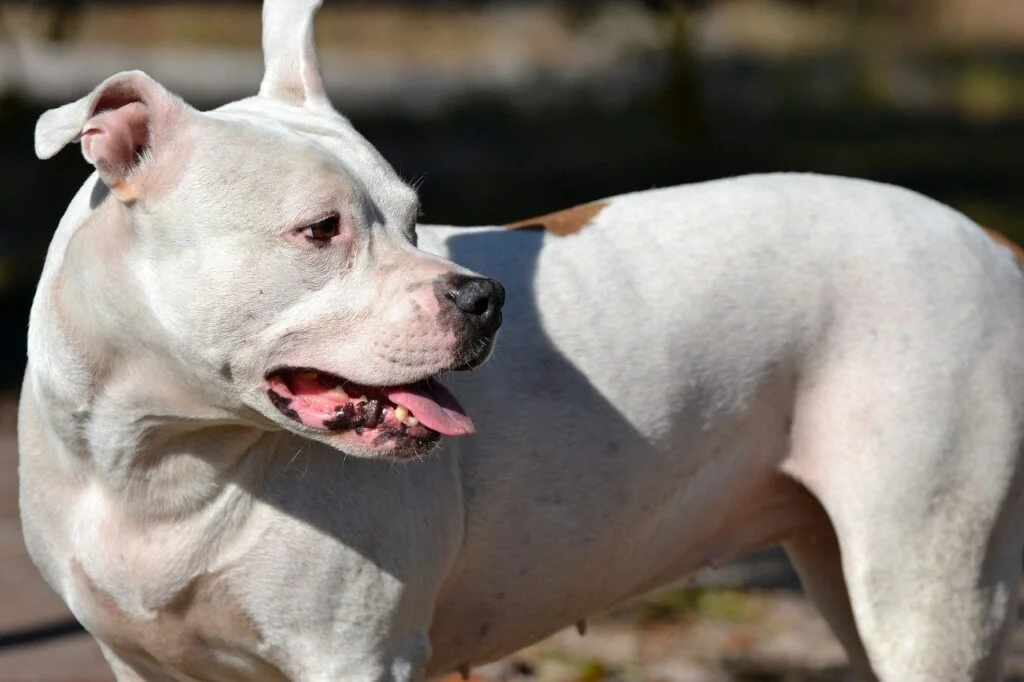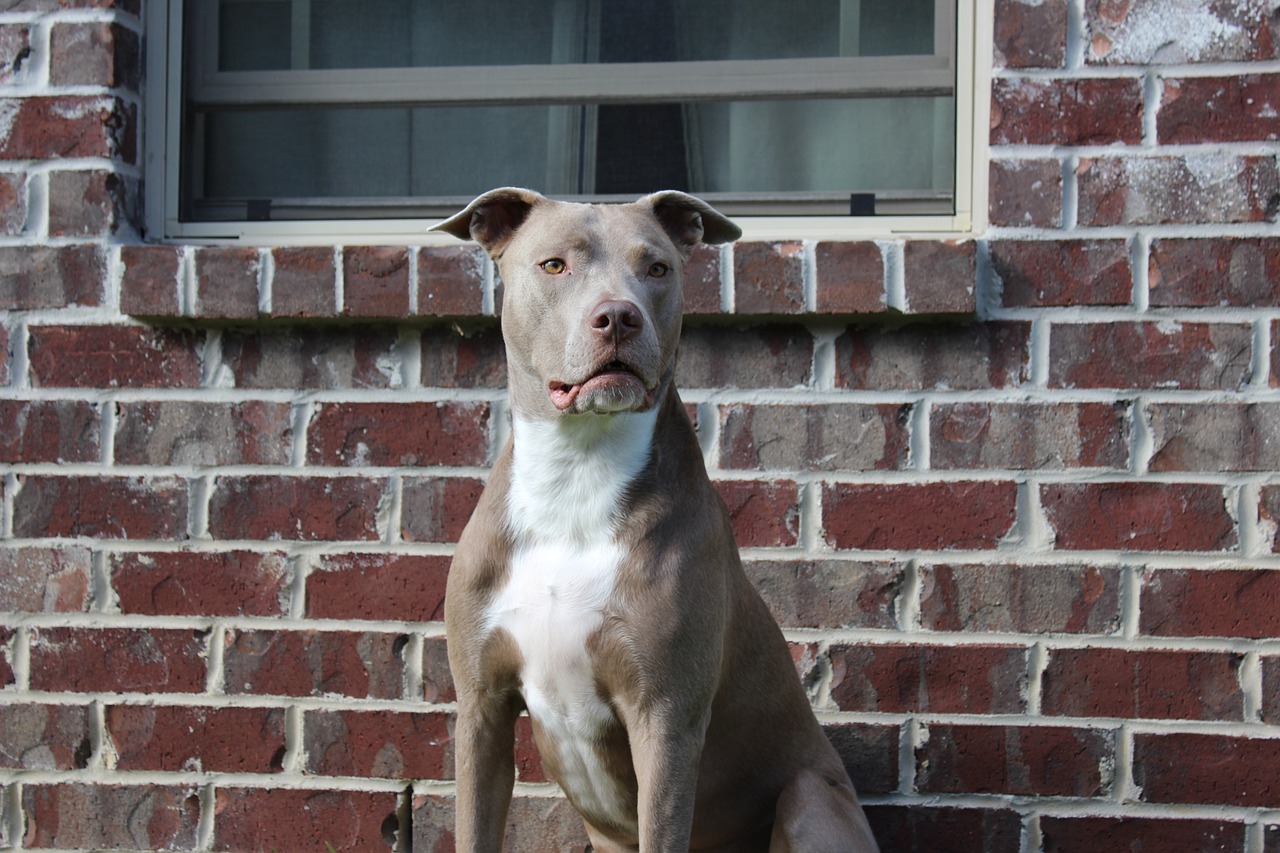Ensuring the cleanliness and health of a Pit Bull’s ears is a crucial aspect of their overall care. These loyal and affectionate dogs have a unique ear structure, which, while endearing, can predispose them to a variety of ear-related issues. Pit Bulls typically have medium-sized ears that may either be prick-eared or rose-eared, creating a suitable environment for the accumulation of dirt, wax, and moisture. This can lead to infections if not addressed. Regular ear cleaning is not only a preventative health measure but also a bonding experience between the dog and its owner. Understanding the proper technique for ear cleaning is vital, as it differs slightly from breed to breed. For Pit Bulls, whose ears are neither too large nor too small, a gentle yet thorough cleaning routine is beneficial. This routine helps maintain the ear’s health, ensuring the dog’s overall comfort and well-being.
Step-by-Step Guide to Cleaning Your Pit Bull’s Ears
Step 1: Gather Supplies
Prepare with a dog-specific ear cleaning solution, cotton balls or pads, and treats for your dog. Avoid using cotton swabs, which can harm the ear canal.
Step 2: Calm Your Dog
Create a calm environment. Gently pet your dog and offer a treat to create a positive association with ear cleaning.
Step 3: Inspect the Ears
Gently lift the ear flap and inspect the ear for signs of infection, such as redness, swelling, or odor. If these are present, seek veterinary advice.
Step 4: Apply Ear Cleaner
Squeeze enough ear cleaner into the ear canal to fill it. Gently massage the base of the ear to distribute the cleaner and loosen debris.
Step 5: Allow Your Dog to Shake
After massaging, allow your dog to shake its head, which helps remove the loosened debris from the ear canal.
Step 6: Wipe and Clean
Gently wipe the outer ear and the accessible part of the ear canal with a cotton ball. Be careful not to insert anything deep into the ear canal.
Step 7: Repeat if Necessary
Repeat the process if the ear is particularly dirty, ensuring all debris is removed.
Step 8: Reward Your Dog
Finish by giving your dog a treat and affection to reinforce a positive experience.
Benefits of Cleaning Your Pit Bull’s Ears
Regular ear cleaning is essential for preventing ear infections, a common issue in dogs. It removes wax and debris, reducing the risk of ear mites and parasites. Regular cleaning also enables early detection of potential ear problems, ensuring timely treatment. Moreover, it helps eliminate unpleasant ear odors and contributes to the overall comfort of your Pit Bull.
In conclusion, regular ear cleaning is an integral part of your Pit Bull’s health routine. Not only does it prevent various ear conditions, but it also fosters a closer bond between you and your pet. By following these simple steps, you can ensure your Pit Bull’s ears remain clean, healthy, and comfortable, contributing significantly to their overall quality of life. Remember, if you notice any signs of ear problems, it’s always best to consult with a veterinarian for proper care and advice.
Frequently Asked Questions About Cleaning A Pit Bull’s Ears
1. How often should I clean my Pit Bull’s ears?
Clean your Pit Bull’s ears every two to three weeks, but this may vary depending on their lifestyle and susceptibility to ear problems. For dogs that swim often or have a history of ear infections, more frequent cleaning might be necessary. Regular checks will help you determine the best schedule. Use a vet-recommended ear cleaning solution and avoid over-cleaning, as it can cause irritation.
2. What are the signs that my Pit Bull’s ears need cleaning?
Signs that your Pit Bull’s ears need cleaning include excessive wax buildup, unpleasant odor, redness, and discharge. Behavioral cues like frequent scratching, head shaking, or discomfort when touching the ears also indicate the need for cleaning. These symptoms can also be early signs of an infection, warranting a vet visit.
3. What materials do I need to clean my Pit Bull’s ears?
For cleaning your Pit Bull’s ears, you’ll need a dog-specific ear cleaning solution, cotton balls or or gauze, and treats for positive reinforcement. Avoid cotton swabs as they can damage the ear canal. Choose a quiet, comfortable spot for cleaning and ensure you have everything at hand before you start.
4. Can I use human ear cleaning products for my Pit Bull?
Do not use human ear cleaning products on your Pit Bull. Their ears have a different pH balance and require canine-specific solutions. Human products can cause irritation or imbalance in your dog’s ears. Always opt for vet-recommended dog ear cleaners.
5. How do I safely hold my Pit Bull during ear cleaning?
Hold your Pit Bull gently but firmly during ear cleaning. Calm them with soothing words and petting. If necessary, have someone assist you. Lift the ear flap and clean gently without forcing or causing discomfort. If your dog resists, take a break and try again later.
6. How deep should I clean my Pit Bull’s ears?
When cleaning your Pit Bull’s ears, focus only on the outer part you can see. Never insert anything deep into the ear canal as this can cause injury. Use cotton balls or gauze to gently wipe away debris and apply cleaning solution, avoiding deep penetration.
7. What is the correct technique for applying ear cleaning solution to my Pit Bull?
Apply ear cleaning solution into the ear canal, but don’t overfill it. Gently massage the base of the ear to distribute the solution, then let your dog shake its head. This helps loosen debris. Wipe away any excess solution and dislodged debris with cotton balls or gauze.
8. Can cleaning my Pit Bull’s ears cause harm?
Improper ear cleaning techniques can harm your Pit Bull. Avoid inserting anything deep into the ear canal and use only dog-specific ear cleaning solutions. If your dog shows discomfort or pain, stop immediately and consult a veterinarian.
9. How do I know if my Pit Bull has an ear infection?
Ear infections in Pit Bulls are indicated by symptoms like persistent scratching, redness, swelling, foul odor, and discharge. If your dog shows discomfort when their ears are touched or you observe these symptoms, consult a veterinarian for proper diagnosis and treatment.
10. Does regular ear cleaning prevent ear infections in Pit Bulls?
Regular ear cleaning can help prevent infections by removing debris and excess wax. However, it’s not a guaranteed prevention, especially in dogs prone to ear problems. Maintain a balanced cleaning routine and consult a vet if you notice frequent infections or irritation.
11. What should I do if my Pit Bull resists ear cleaning?
If your Pit Bull resists ear cleaning, stay calm and pause the process. Use treats and gentle petting to reassure them. Try again later when they’re more relaxed. If resistance continues, consider seeking help from a professional groomer or a vet, especially if regular ear cleaning is necessary for health reasons.
12. Are there natural remedies suitable for cleaning a Pit Bull’s ears?
While some natural remedies exist, it’s safest to use vet-approved ear cleaners. Natural ingredients like apple cider vinegar or hydrogen peroxide can be too harsh and disrupt the ear’s natural pH balance. Consult your vet before using any homemade solutions to ensure they are safe and effective for your dog’s ears.
13. How can I tell if my Pit Bull’s ear cleaning routine is effective?
An effective ear cleaning routine results in clean, odor-free ears with no excessive wax or debris. Your dog should be comfortable during and after cleaning, showing no signs of irritation or discomfort. If you notice persistent dirt, odor, or your dog shows discomfort, consult a vet to evaluate your cleaning technique and frequency.
14. What is the best way to dry my Pit Bull’s ears after cleaning?
After cleaning, dry your Pit Bull’s ears by gently wiping with a soft, dry cotton ball or gauze. Avoid leaving moisture in the ears, as this can promote bacterial growth and lead to infections. Ensure the ears are completely dry, especially after baths or swimming.
15. Can diet affect my Pit Bull’s ear health?
Yes, diet can influence your Pit Bull’s ear health, especially if they have food allergies or sensitivities. Allergies can manifest as ear inflammation and infections. Consult with a veterinarian to identify any food-related issues and to get dietary recommendations that support overall health, including ear health.





order cheap clomid without prescription generic clomiphene without dr prescription where to buy clomiphene price can you get generic clomid for sale where buy generic clomid no prescription cost clomid online can i order cheap clomiphene for sale